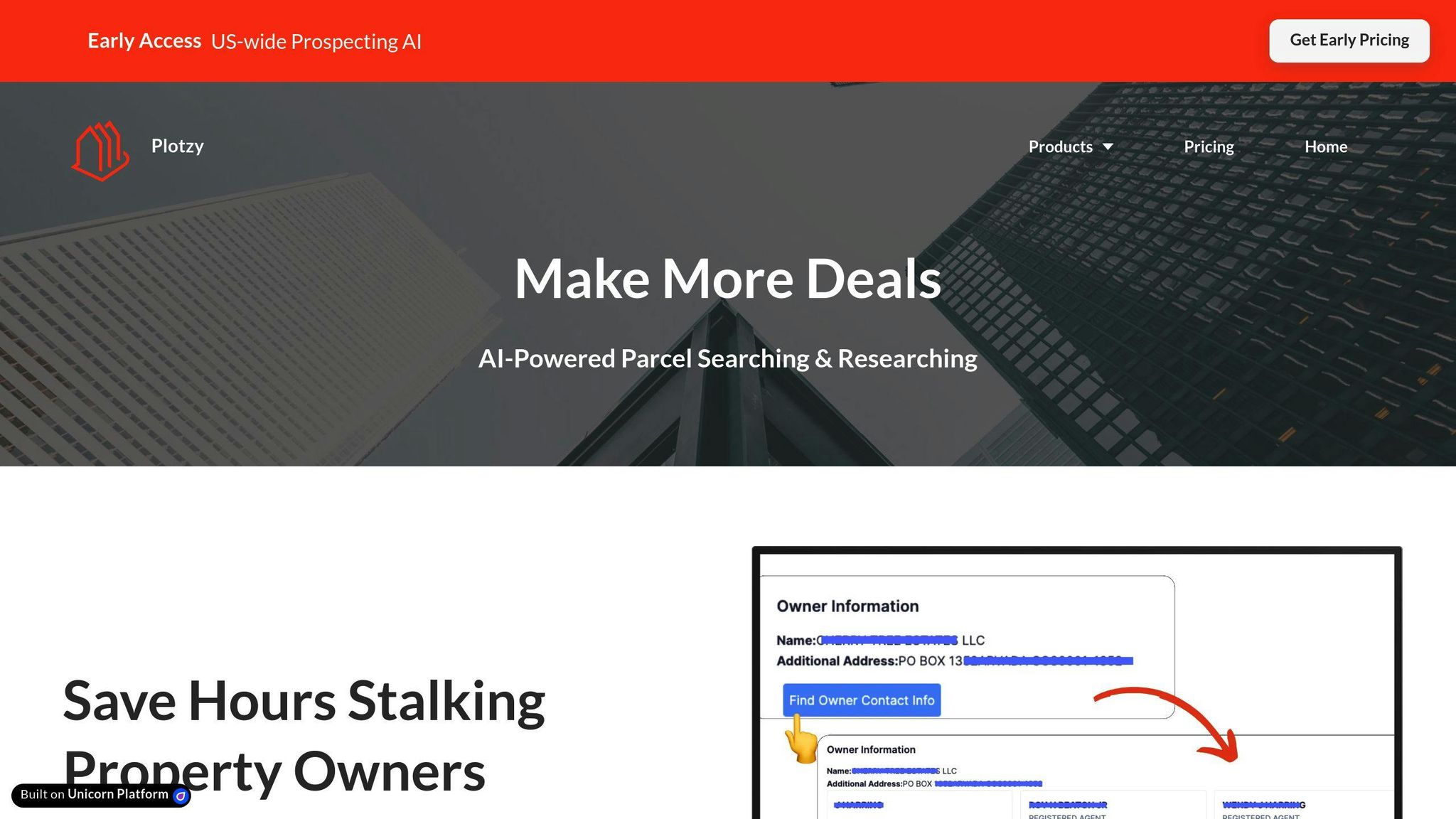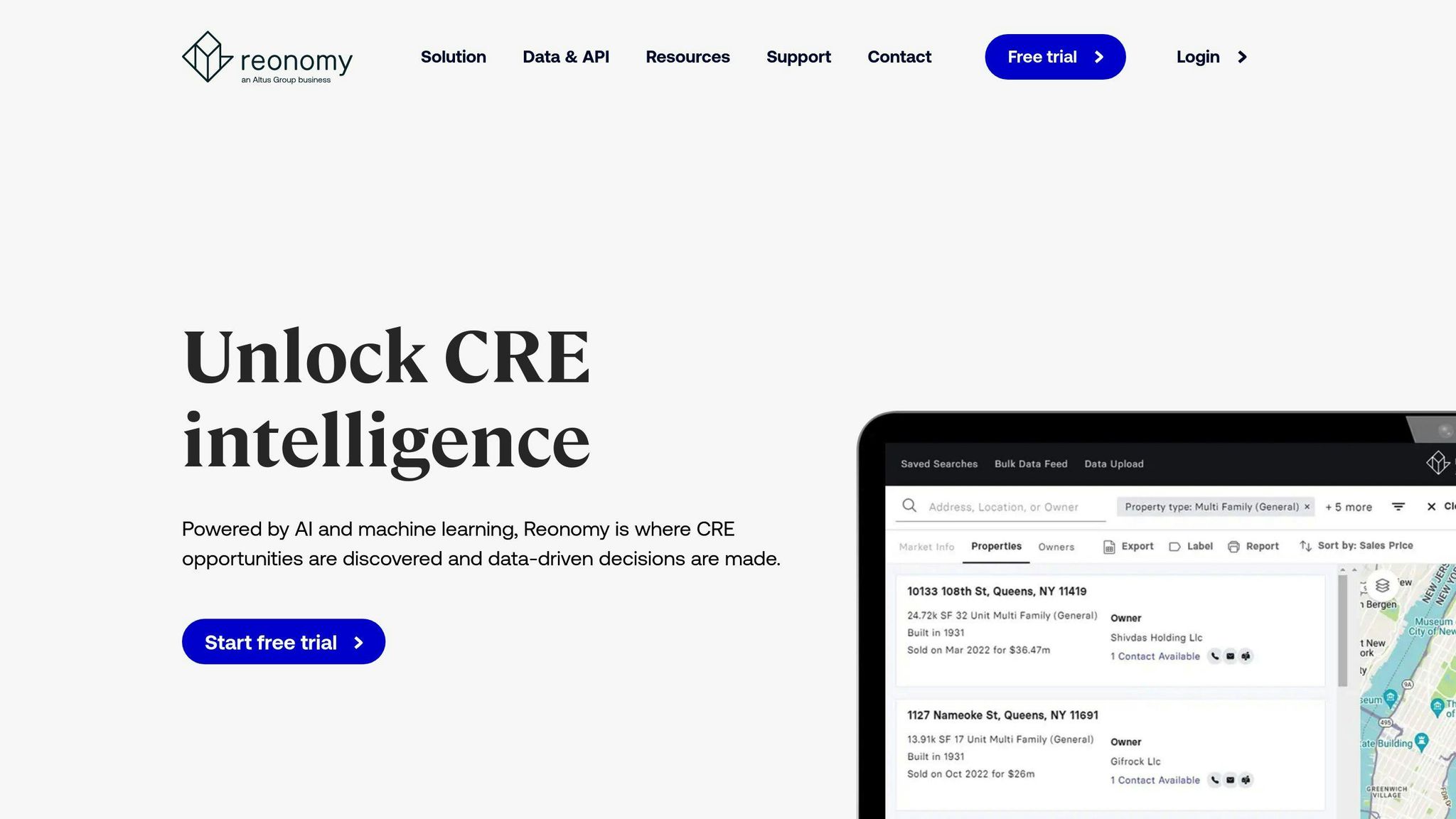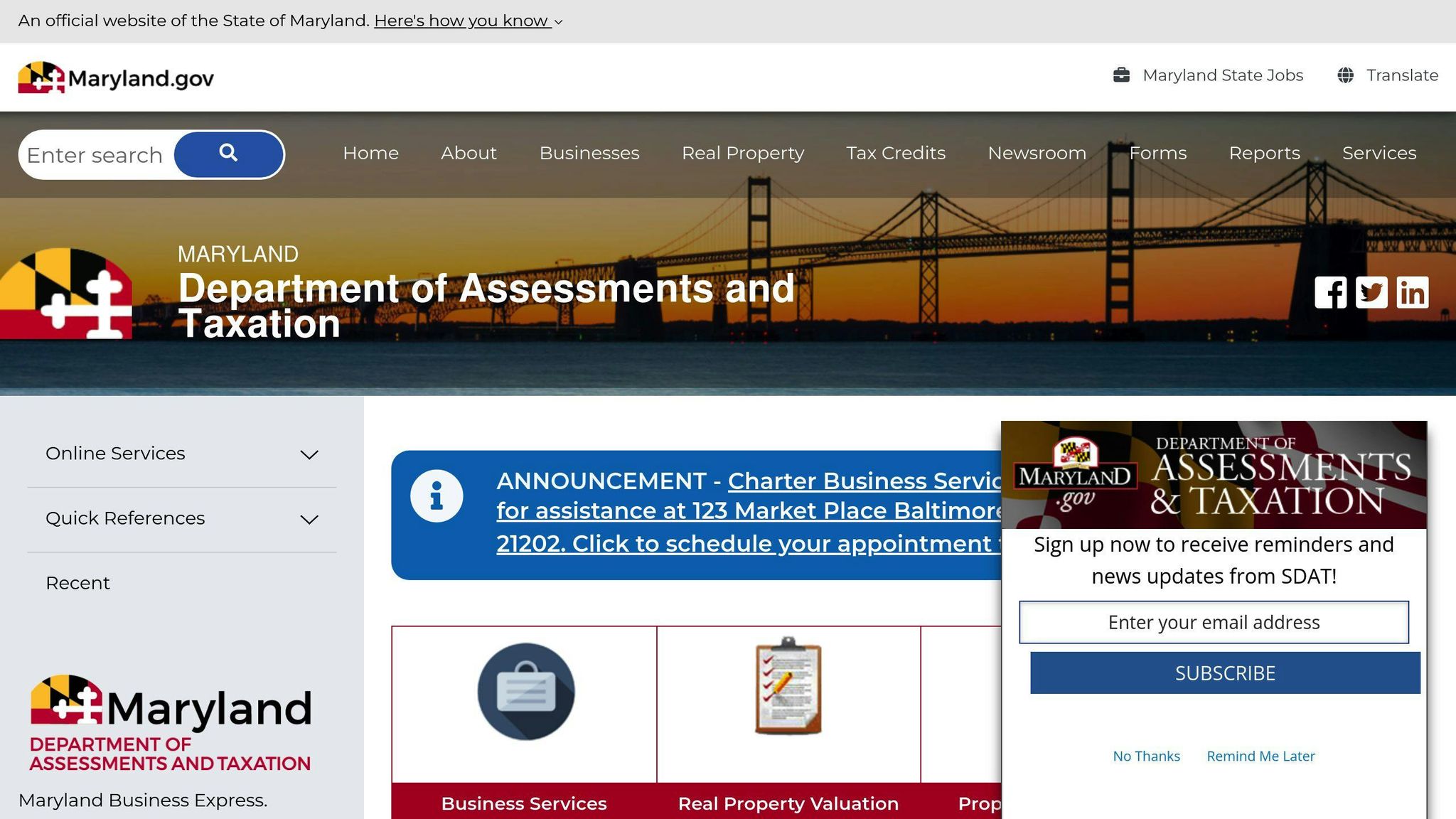To find the owner of a commercial property, you can use a mix of traditional methods and modern tools. Here's a quick guide:
- Public Records: Check county assessor offices, tax records, and deed registries. Use platforms like NETROnline for easier access.
- Local Government Databases: Explore GIS maps, tax assessor records, and deed registries for detailed ownership and transaction history.
- Contact Local Assessors: Reach out to county offices for personalized help, especially for properties owned by LLCs or trusts.
- Secretary of State Searches: Look up LLCs or trusts to find managing members and contact details.
- AI Tools: Use platforms like Plotzy and Reonomy for fast, detailed ownership data and contact information.
Key Tools Comparison
| Tool | Features | Best For |
|---|---|---|
| Plotzy | Owner contact details, zoning insights | Quick property owner identification |
| Reonomy | Ownership structure, transaction history | In-depth ownership and market data |
| SDAT | Address and parcel searches | Maryland-specific ownership data |
| ACRIS | Historical ownership and transaction data | NYC-specific property records |
Combining these methods ensures you get accurate and verified ownership details quickly.
Related video from YouTube
Ways to Find Commercial Property Owners Using Traditional Methods
You can discover commercial property owners through public records, government databases, and by connecting with local officials. These methods are reliable and often free to use.
Searching Public Records for Ownership Information
Check resources like county assessor offices, tax records, and deed registries to find ownership details. Platforms like the Public Records Online Directory make it easier to locate state-specific property records. You can search by address or parcel number, focusing on deed transfers and tax assessments to pinpoint current owners. To avoid mistakes, cross-check information across multiple sources.
Using Local Government Property Databases
County GIS maps, tax assessor records, and deed registries are treasure troves of information. These databases often include property boundaries, ownership history, tax records, and transaction details. Many counties provide online access via user-friendly portals like NETROnline, which simplifies the search for specific property data.
Reaching Out to Local Assessors for Help
When online sources don’t provide enough clarity - especially for properties with complicated ownership - contacting local assessors can be a game-changer. Reach out to the county or parish office managing the property. Many assessor offices offer personalized assistance for digging into complex ownership records.
For properties owned by LLCs or trusts, you can use Secretary of State business searches to find key details like:
- The registered business name listed on property records
- Names of managing members or officers
- Official business addresses for correspondence
If these traditional methods hit a dead end, modern AI tools can offer quicker and more detailed results.
sbb-itb-11d231f
Using AI Tools to Make Property Research Easier
AI tools are transforming how professionals handle property research, especially when quick decisions are critical. Instead of spending weeks digging through public records, these tools allow users to identify and contact property owners in just hours - perfect for fast-paced, competitive markets.
With AI, real estate professionals can now verify property ownership swiftly and precisely. These tools combine advanced algorithms with extensive databases, delivering results in minutes rather than days or weeks.
Plotzy: AI Tools for Property Research

Plotzy is a standout platform for commercial property research, offering:
- Instant zoning insights: Quickly understand property use restrictions.
- Parcel filtering: Search for properties based on specific permitted uses.
- Owner contact details and reporting: Access verified owner information and generate detailed reports for stakeholders.
Reonomy: A Tool for Deep Property Data

Reonomy specializes in connecting scattered data points to reveal ownership details at lightning speed. Its strengths include:
- Ownership structure analysis: Navigate complex ownership hierarchies with ease.
- Transaction and market data: Review transaction histories and market trends to guide investment choices.
- Contact verification: Ensure owner and decision-maker details are always up to date.
While Reonomy excels in ownership and transaction insights, other tools focus on niche aspects of property analysis.
Other AI Tools for Real Estate Research
Several other AI tools complement platforms like Plotzy and Reonomy, creating a robust toolkit for property professionals.
- Prophia: Extracts and organizes lease terms for better clarity.
- Leverton: Converts property documents into structured, searchable data.
- PropertyRadar: Provides verified owner contact details to streamline communication.
Together, these tools enhance the efficiency of property research, making it easier to analyze ownership, transactions, and other critical data points.
State-Specific and Specialized Resources for Property Ownership
When researching property ownership, state and local databases are invaluable. They provide official, legally verified records that can enhance the insights gained from AI tools, especially for commercial properties.
Using State Databases Like SDAT and ACRIS

Databases such as Maryland's SDAT and NYC's ACRIS offer detailed ownership records, transaction histories, and assessment values. SDAT updates its data monthly, while ACRIS refreshes daily and includes records dating back to 1966. These platforms are essential for anyone delving into commercial property research.
| Feature | SDAT (Maryland) | ACRIS (NYC) |
|---|---|---|
| Search Options | Address, parcel number, owner name | Borough, block, lot number |
| Update Frequency | Monthly | Daily |
| Historical Data | 20+ years | Since 1966 |
| Document Types | Deeds, liens, assessments | Deeds, mortgages, easements |
Platforms Focused on Zoning and Permits
For additional insights, platforms like BuildZoom and HouseCanary offer data on development and permit activities. BuildZoom tracks over 200 million building permits across the country, shedding light on property improvements, construction projects, and ownership changes. HouseCanary provides real-time zoning updates and verifies ownership through permit data, covering over 100 million properties.
While these tools are powerful, it's wise to cross-check their findings with official state or local records. Permit data, for example, may reflect more recent ownership changes than property deeds. By combining these specialized platforms with state databases and AI tools, real estate professionals can build a complete and accurate picture of property ownership.
Combining Old and New Tools for Property Research
Researching commercial property owners effectively requires a mix of tried-and-true methods and modern AI tools. By using both, professionals can simplify their process and gather ownership details more quickly and accurately.
How Real Estate Professionals Can Optimize Research
To get the most out of property research, real estate professionals should use a combined approach. Begin with established methods like county assessor websites and GIS maps to gather foundational property data. Then, turn to AI platforms for deeper insights, such as owner contact details and property specifics. For properties tied to LLCs or holding companies, blending state databases with AI tools can help piece together ownership information.
| Research Stage | Traditional Method | AI-Driven Solution |
|---|---|---|
| Initial Search | County Records | AI-Powered Parcel Search |
| Owner Verification | Local Assessor's Office | Digital Contact Information |
| In-Depth Analysis | Title Research | Advanced Entity Search Tools |
This combined approach ensures that research is thorough, accurate, and efficient by allowing for cross-verification of data.
The Role of AI in Modern Property Research
AI has reshaped property ownership research by making searches faster and more precise. With these tools, professionals can filter properties by specific criteria and access ownership details instantly. While traditional methods remain essential for verification, AI adds a powerful layer of efficiency and detail.
"Building strong relationships with property owners is critical to closing deals."


